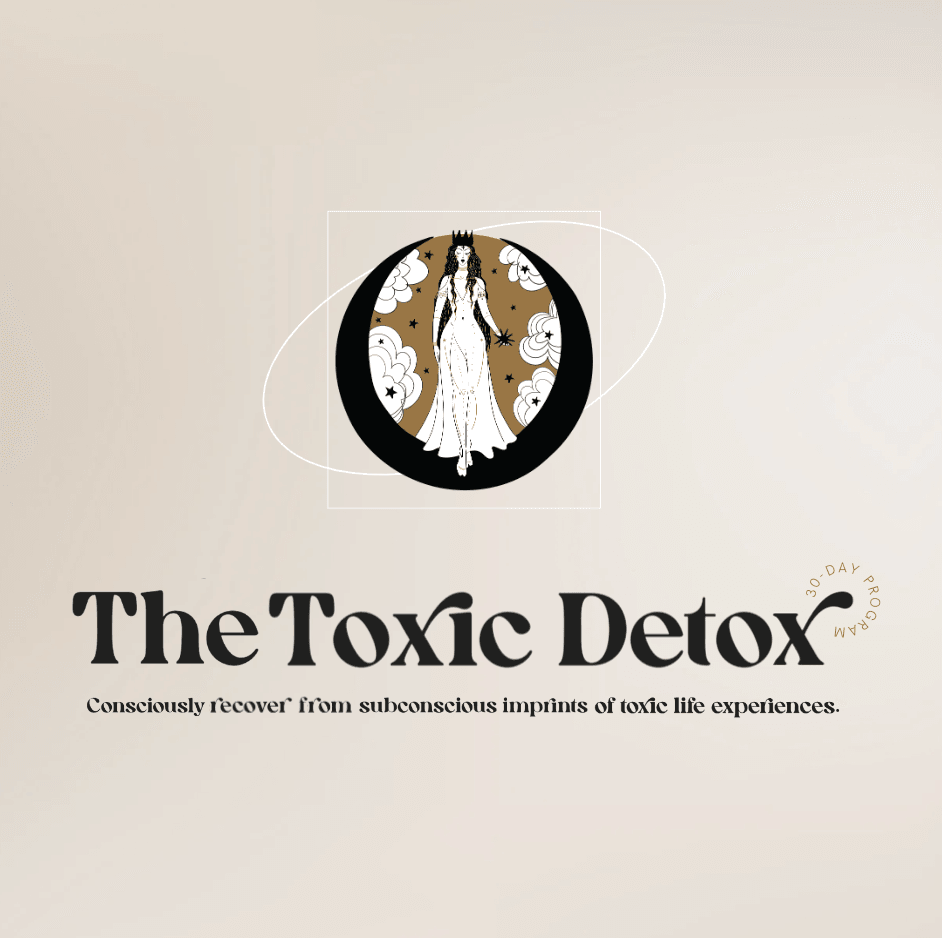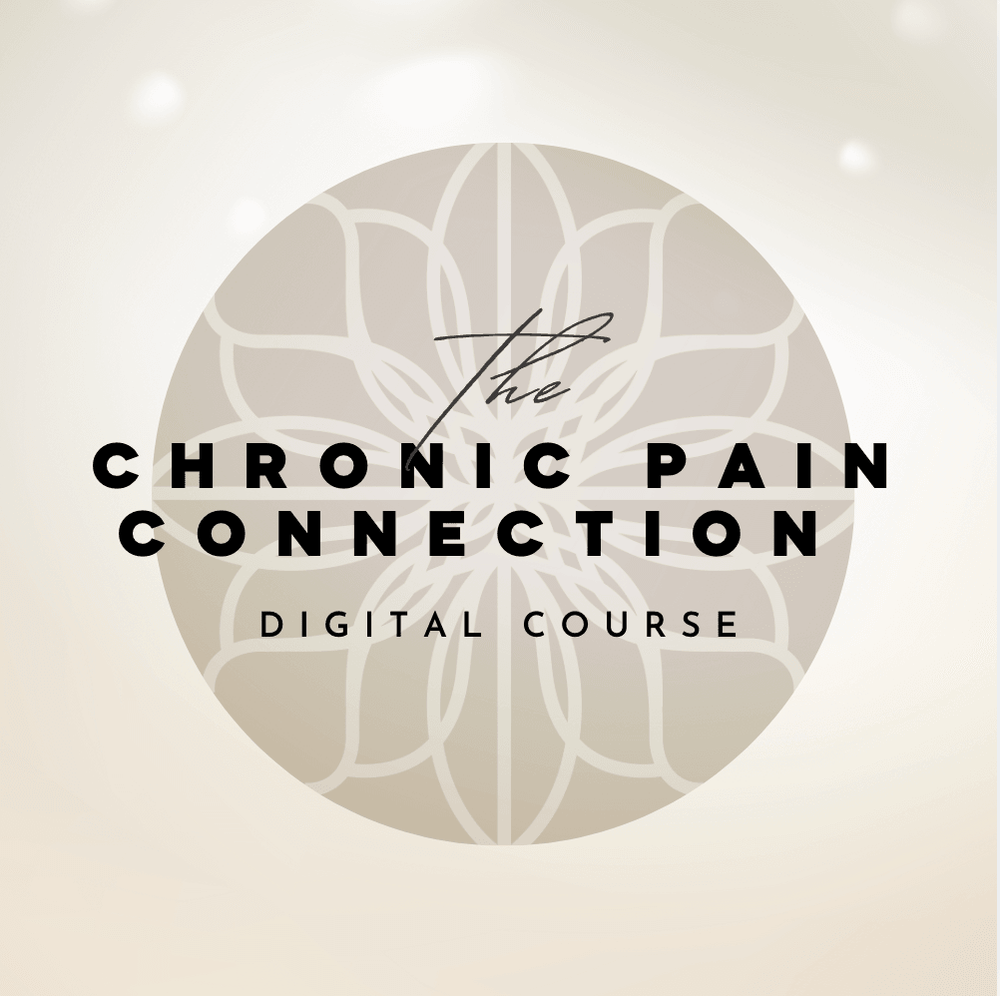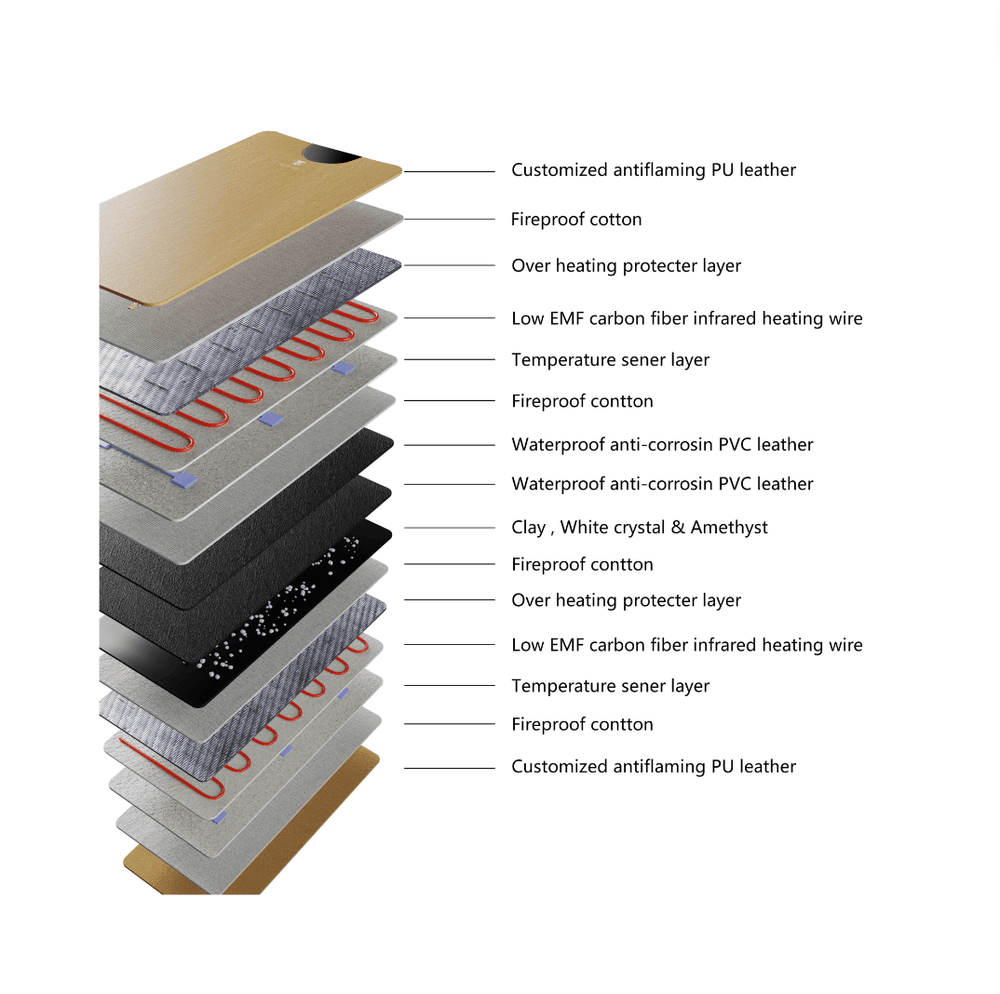Healing from Trauma: Finding Peace and Renewal
What is trauma and how does it affect the brain and body?
Trauma is a psychological and emotional response to an event or experience that overwhelms a person's ability to cope. It can have profound effects on the brain and body, leading to symptoms such as hyperarousal, flashbacks, avoidance behaviors, and physical health issues like chronic pain and inflammation.
It can have a profound impact on the brain and body, triggering a heightened stress response, disrupting neural connections, and leading to physical and mental health issues.
It also has a profound impact on our lives, shaping our thoughts, emotions, and behaviors. The pain of the past can seep into our present, making it difficult to find peace and renewal within ourselves.
However, trauma healing is possible, and by understanding its nature, identifying its symptoms, and seeking treatment, we can begin the journey toward healing, self-compassion, and personal growth.
I know I'm not the only one....
Who wonders what are signs that someone has been traumatized and are you not over it yet?
Signs can manifest in physical, emotional, and behavioral ways, indicating that an individual has experienced trauma. Physical symptoms may include headaches, stomachaches, or chronic pain. Emotional symptoms may include anxiety, depression, or feeling disconnected from others. Behavioral symptoms may include avoidance of certain places or activities, hyper-vigilance, or difficulty in trusting others.
These signs can vary from person to person, and it's important to remember that trauma healing is a unique journey for each individual. It's not a matter of simply "getting over" trauma but rather finding ways to cope and heal. Seeking guidance and tools to help navigate the trauma recovery process, enabling you to find peace and renewal in your life once again, despite the setbacks that may occur along the way.
Understanding Past Trauma
In all its forms, trauma can be described as a deeply distressing and disturbing experience that shakes us to our core. It can range from single traumatic events, such as accidents or violence, to chronic trauma events, such as childhood abuse or domestic violence that continue or repeat for months or years at a time, including neglect. The nature of trauma is complex, and it affects individuals in different ways, depending on factors such as the intensity and duration of the traumatic event.
The nature of past traumas
Past traumas, including early trauma and adverse childhood experiences, vary in intensity and duration, impacting individuals differently. They can shatter one's sense of security and stability, leaving them feeling vulnerable and helpless. Traumatic events often involve a sense of powerlessness and loss of control, leading to a distorted perception of reality and emotional upheaval. Coping with this requires support, understanding, resilience, and healing to overcome helplessness in a person's life.
How past trauma affects our present healing ability
These experiences can leave lasting scars on our mental, emotional, and physical well-being, affecting our present lives in profound ways. If unresolved it can lead to fear, anxiety, and hyper-vigilance, as we remain on constant alert for potential threats. It can also give rise to self-destructive coping mechanisms, as we try to numb or escape the pain of the past. The impact can interfere with relationships, work, and daily functioning, creating a persistent sense of unease that infiltrates every aspect of our lives. Healing involves acknowledging and addressing its effects, allowing us to regain control of our present experiences.
Identifying Symptoms of Past Trauma
Traumatic experiences leave a lasting imprint on our minds, bodies, and souls, and the symptoms can manifest in various ways. It is important to recognize and acknowledge these symptoms, as they are often indicators of unhealed trauma that needs attention and support.
Emotional symptoms
Emotional symptoms encompass intense feelings of fear, shame, and guilt. Survivors may struggle with self-blame, feeling as though it was their fault. Emotional numbness and detachment are also common, as traumatic experiences can overwhelm the emotional capacity of the individual. Heightened sensitivity, reactivity, and difficulty regulating emotions, known as common reactions, are also signs of trauma, as the memories become intertwined with day-to-day experiences, triggering intense emotional responses.
Physical symptoms
The physical toll can be just as significant as the emotional impact. Traumatic experiences may manifest in physical symptoms such as chronic headaches, digestive issues, insomnia, and fatigue. The tension held in the body can result in physical discomfort, rapid heartbeat, and excessive sweating. Furthermore, chronic stress resulting from unresolved trauma can weaken the immune system, making survivors more susceptible to physical health problems and chronic illness.
Behavioral symptoms
Traumatic experiences can deeply affect our behavioral patterns, leading to self-destructive behaviors, substance abuse, risk-taking, addiction, and self-harm. Survivors may also withdraw socially, isolating themselves from others due to a sense of mistrust and fear of being vulnerable. Trust and intimacy become major challenges, causing difficulties in relationships, both personal and professional. Coping mechanisms developed often involve compulsive or impulsive actions, as individuals try to regain a sense of control or escape from the pain of the past.
The Role of Emotions in the After Effects Of Traumatic Experiences
The role of emotions in the aftermath of a traumatic experience is crucial. Emotions serve as the bridge between our inner world and external reality, and when trauma occurs, this bridge can become severely damaged. Survivors often find themselves caught in a whirlwind of intense and conflicting emotions.
Emotions play a complex and integral role in the post-traumatic experience, shaping how we perceive ourselves, others, and the world around us. Understanding this role is essential for healing and finding peace within ourselves.
Healing from trauma involves acknowledging and processing the overwhelming emotions, known as trauma symptoms, that accompany it. For many survivors, emotions can range from anger and sadness to fear and shame. These intense feelings can be confusing and difficult to navigate, causing further distress and isolation. It is important to recognize that these emotions are a natural response to trauma. Suppressing or ignoring trauma symptoms may prolong the healing process. Instead, engaging in fun activities is a great way for survivors to express their emotions without judgment or shame.
Feeling unseen and unheard
One of the most significant emotional experiences of survivors is feeling unseen, invalidated, and overlooked in their pain. Traumatic experiences can be isolating, leaving individuals with a sense of being invisible, as if their trauma doesn't matter or isn't worthy of attention. This feeling of being unheard can exacerbate the distress and isolation trauma survivors already feel, intensifying the emotional toll of their experiences. You must have someone to share your feelings with, someone who will listen attentively without judging you. Turn to a trusted family member, friend, counselor, or community.
The need for safety and love
Traumatic events shatter our sense of safety, leaving us craving acceptance, love, and nurturing support. Nurturing relationships and environments is vital for healing, as they provide the safety, stability, and love needed to rebuild trust and security. Feeling safe and loved is pivotal for survivors, as it fosters healing, self-compassion, and renewal.
The Connection Between Past Trauma and Present Issues
The connection between past trauma and present issues is profound, affecting our physical health, emotional well-being, and mental health. Understanding this connection allows us to address the root causes of our struggles, empowering us to heal, grow, and find peace within ourselves.
Impact on physical health
Past trauma can have a significant impact on physical health, leading to chronic health problems, chronic pain, and physical symptoms of stress-related disorders. The body retains trauma, manifesting as physical discomfort, tension, and psychosomatic symptoms. Unresolved trauma weakens the immune system, making survivors more vulnerable to physical health problems.
Impact on emotional health
The emotional toll is far-reaching, affecting our sense of self, self-worth, and emotional stability. Unresolved trauma often leads to emotional instability, mood swings, and intense fear and insecurity. Emotional numbness and detachment are common, making it difficult for survivors to engage in relationships and trust others. Traumatic experiences can also lead to self-doubt, low self-esteem, and a sense of shame, further impacting emotional health.
Impact on mental health
It can have a profound impact on mental health, leading to cognitive distortions, negative thoughts, and mental health disorders, such as post traumatic stress disorder (PTSD) or complex post traumatic stress disorder (C-PTSD). Intrusive memories, flashbacks, and difficulty in regulating emotions are common symptoms of PTSD and complex PTSD.
Persistently feeling hopeless, despairing, or experiencing difficulties in concentration and decision-making are additional symptoms survivors may face. When subconscious thoughts and traumatic memories of a series of traumatic events don’t go away or get worse, they may lead to complex posttraumatic stress disorder (C-PTSD) which can seriously disrupt a person’s ability to regulate their emotions and maintain healthy relationships.
Symptoms of complex PTSD often develop due to prolonged exposure to several types of complex trauma such as domestic violence, physical abuse, and others. Childhood trauma, including child abuse, is one of the main causes of complex PTSD, as it can result in prolonged and repetitive trauma that affects a person's memory, identity development, emotional control, and relationships with others, and can often begin in early childhood.
Extreme stress can also lead to trauma, a condition that affects a person's mental health condition. Disorders of extreme stress-not otherwise specified (DESNOS) is a mental disorder close to CPTSD. Complex PTSD or DESNOS was not added as a separate diagnosis to DSM-IV because results from the DSM-IV Field Trials indicated that 92% of individuals with complex PTSD/DESNOS also met diagnostic criteria for PTSD. Mental health professionals may use different terms such as EPCACE or DESNOS to describe the same condition, which has similar risk factors and symptoms.
Approaches to Diagnosing Past Trauma Effects
Diagnosing the effects of past trauma requires a deep understanding of the symptoms, triggers, and coping behaviors. Recognizing these elements, survivors can gain insight into their experiences, paving the way for healing and renewal.
Recognizing triggers from the past
These triggers have a way of creeping into our lives unnoticed, only to suddenly unleash a flood of emotions. Triggers can be unpredictable, lurking in the shadows, waiting for the perfect opportunity to resurface.
Many triggers are tied to emotions like not being seen, heard, understood, valued, or feeling safe. These triggers can manifest in various forms - a certain smell, a particular sound, or even a familiar gesture. By identifying the intricate web of emotions they evoke, survivors can begin to untangle the complexities of their experiences. This self-awareness is the first step towards healing and renewal.
The power of triggers lies in their ability to transport us back to the emotional moment of our trauma, subconsciously.
They have a way of hijacking our emotions and pulling us into a dark abyss of anxiety, stress, fear, depression, or anger. It's like being caught in a never-ending loop where the past becomes entangled with the present.
Identifying these triggers is crucial for understanding the impact on behavior, thoughts, and emotions. By identifying triggers, survivors can manage trauma-related stress responses, develop coping strategies, and create environments that support healing and growth. This is where journaling can help you document how this can be sabotaging your daily life.
Treatment and Coping Strategies
The healing journey from past trauma is unique to each individual, and different treatment options and coping strategies can support survivors in finding peace, renewal, and healing.
Trauma Healing options
Therapy, in its various forms, provides a safe space for processing, healing, and self-discovery. Therapeutic support provides survivors with guidance, validation, healing tools, and a sense of community, fostering healing, self-compassion, and growth.
As survivors embark on their healing journey, recognizing triggers from the past becomes a vital step towards recovery. These triggers, like haunting memories or certain situations, can evoke intense emotional and physical reactions. By identifying these triggers, survivors gain insight into the ways trauma has shaped their behavior, thoughts, and emotions. This understanding allows them to manage trauma-related stress responses and develop coping strategies that facilitate healing and growth, such as somatic experiencing. Creating environments that support this healing process also becomes crucial.
Self-care practices
Self-care practices play a crucial role in healing, self-compassion, and self-acceptance. Nurturing our physical, mental, and emotional well-being is essential in managing stress, anxiety, and symptoms. Engaging in self-compassionate practices, such as mindfulness, self-reflection, self-acceptance, physical exercise, healthy relationships, and creative outlets, supports survivors in finding peace, renewal, and healing.
You're not the only one....
To wonder.... Will I ever be normal after trauma?
It is common for survivors to question whether they will ever feel "normal" again. The healing journey is different for everyone, and it takes time, support, and self-compassion. Healing involves developing coping mechanisms, learning to manage triggers, and seeking therapy or counseling, as well as at-home self-care rituals. Remember, healing is not about returning to who you were before the trauma, but rather about finding a sense of self, peace, and renewal. You can use the American Psychological Association’s Psychologist Locator to find a therapist who is familiar with trauma. You can also look up support groups near you to help you get back to your normal routine.
To wonder.... What is the difference between trauma and stress?
Trauma and stress are closely intertwined, both having significant impacts on mental, emotional, and physical well-being. Trauma refers to deeply distressing experiences, while stress is the body's response to challenging or threatening situations. Both can manifest in physical symptoms, flashbacks, anxiety, depression, cognitive distortions, and more. Seeking professional support from therapists or counselors can aid in healing psychological trauma and managing stress in the present. Your doctor might also recommend dialectical behavioral therapy, a type of cognitive behavioral therapy that helps you better respond to stress and build stronger relationships with others. World-renowned trauma expert Bessel van der Kolk is a proponent of rewiring the brain and reestablishing trust in the physical body through practices like yoga and meditation. Research shows that yoga and meditation can be effective adjunctive treatments for PTSD and can be used in conjunction with Trauma-Focused Cognitive Therapy (TF-CT) to work through a self-help guide for PTSD and CPTSD. In addition, group therapy can also be a beneficial treatment option for individuals dealing with trauma and stress.
To wonder.... Can I be healed completely, or is it something that has to be managed over time?
While healing is possible, it may take time, effort, and professional support. Managing symptoms over time, developing healthy coping mechanisms, and practicing self-care can support survivors in finding healing, self-compassion, and renewal.

And That's That!
Wrapping up this episode... we have chatted about how past trauma can have a profound impact on our present lives. It can manifest in various ways, from emotional and physical symptoms to behavioral patterns that affect our relationships and overall well-being.
It is essential to recognize and understand the connection between past trauma and our current struggles. By seeking therapy and practicing self-care, we can begin to heal and find peace within ourselves. It's important to remember that healing is a journey, and it may take time, but with commitment and support, it is possible to overcome the effects of past trauma and find the right therapist to strengthen resiliency and lead a fulfilling life.
Remember, you are not alone, and help is available to guide you toward renewal and inner peace.
DISCLAIMER:

















